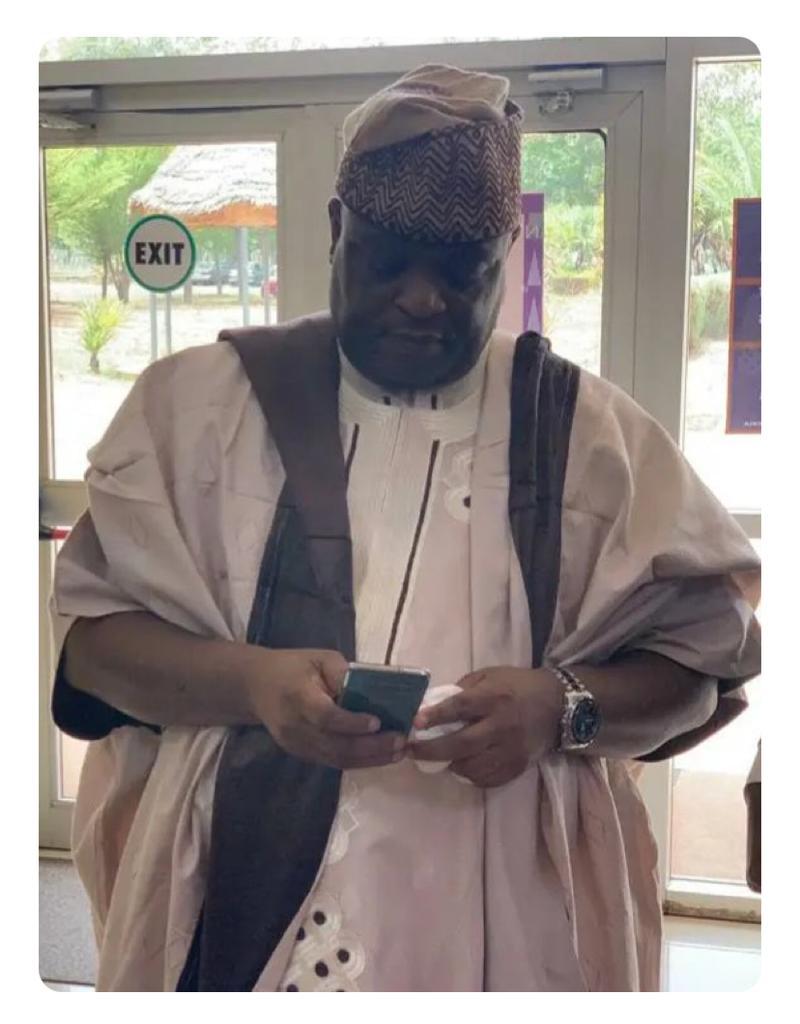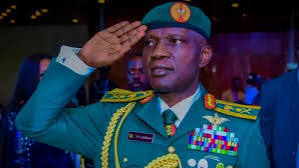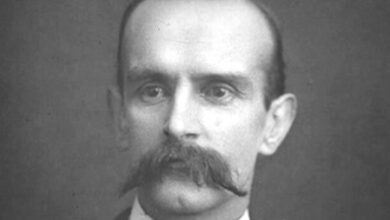Why restructuring Nigeria is only way forward

CHIMA NWAFO
This article is excerpted from a historical document produced by patriots from the six geopolitical zones who convened under the sobriquet, New Nigeria Movement. The epic document was circulated by the Convener, also an official of the Yoruba Council of Elders (YCE), on August 14. The cerebral piece proffered quantum justifications for immediate restructuring, if Nigeria must survive her cumulative multifaceted political and economic conundrum, exacerbated by the woeful misrule and unmatched megalomania of the last nine years.
Coincidentally the North, which has consistently resisted earlier calls for restructuring, in recent publications gave its affirmation, also aligning with elder statesman, Prof Ango Abdullahi’s submission or rather frustrations with the current state of the nation.
It’s important to ote that President Bola Tinubu’s reign of nepotism and clueless fiscal policy has left the North with what one of their elders called “the short end of the stick.” This is the first time the North feels excluded in 57 years of North/South West winner-takes-all governance relay that edged out South East in a strategically implemented marginalisation policy. Until now, it was the Southern and Middle Belt leaders that have demanded implementation of the recommendations of the 2014 National Conference where representatives of the people collectively agreed that restoration of true federalism is the only way the country could move forward, as it allows the federating units develop at their own pace, taking advantage of their respective human and material resources.
Prognostications
This document meticulously selected documented evidences confirming that Buckingham Palace/10 Downing Street, London, deliberately coerced the northern and southern strange bedfellows into a marriage of inconvenience, for their political/economic convenience. For examples:
“No European power was in Africa for purely altruistic motives; and one side of the dual mandate which Britain and other colonial powers had undertaken in Africa was apt to succeed at the expense of the others. The Europeans’ desire to exploit African trade and resources was apt to be a stronger force than the feeling of obligation to help the African people to advance.” (Fredrick Lugard, Dual Mandate in Tropical Africa, 1922).
One-time Governor-General of Nigeria, Hugh Clifford, was explicit: “Assuming that the impossible were feasible that this collection of self-contained and mutually independent Native States separated from one another, as many of them are, by great distances, by difference of history and traditions, and by ethnological, racial, tribal, political, social and religious barriers, were indeed capable of being welded into a single homogeneous nation – a deadly blow would thereby be struck at the very root of national self-government in Nigeria, which secures to each separate people the right to maintain its identity, its individuality, its own chosen form of government, and the peculiar political and social institutions which have been evolved for its forebears.”
According to the elders, “the British were actually conscious of their misdemeanors of agglutinating the strange bedfellows in a marriage of inconvenience solely for their personal purpose; it is, therefore, no wonder that ab initio and hitherto, the evolution of the country has been immersed in perpetual chaos of chauvinism, distrust, feudalism, envy, self-centredness, misrule, corruption, mutual suspicions and other accessories of retrogression until the country is presently ground to a halt that we are witnessing today.”
First Nigerian practising lawyer, Alexander Sapara Williams, did not mince words in his prognostication: “Our great country has by that (1914) amalgamation gone into hibernation. I don’t know how long it would be in that hibernatory state. But as long as the Yoruba country is connected with the sea, we shall not fail. And one day, we shall come out of that hibernation to be a free country again.”
And, in 1948, would-be Prime Minister, Sir Abubakar Tafawa Balewa, had said: “Since 1914, the British government has been trying to make Nigeria into one country, but the Nigerian people themselves are historically different in their backgrounds, in their religious beliefs and customs, and do not show themselves any signs of willingness to unite. Nigeria’s unity is only a British invention.”
Second Republic President, Alhaji Shehu Shagari, averred: “The only way left for rapid progress of both countries in Northern Nigeria and Southern Nigeria is to return to the good old days when the North and South were separate.”
To the sage, Chief Obafemi Awolowo, “Nigeria is not a nation. It is a geographical expression. There are no Nigerians in the same sense as there are ‘English,’ Welsh or ‘French’. The word Nigeria is merely a distinctive appellation to distinguish those who live within the boundaries of Nigeria and those who do not.”
Then Sardauna of Sokoto, Sir Ahmadu Bello, well-tutored by the colonialists, had enthused: “The new nation called Nigeria should be an estate of our great grandfather, Uthman Dan Fodio. We must ruthlessly prevent a change of power. We’ll use the minorities in the North as willing tools and the South as a conquered territory, and never allow them to have control over their future.”
The light-bearing averter, ceremonial President, Nnamdi Azikiwe, in 1964, warned: “It is better for us and many admirers abroad that we should disintegrate in peace and not in pieces. Should the politicians fail to heed this warning, then I will nurture the prediction that the experience of the Democratic Republic of Congo will be a child’s play if ever it comes to our turn to play such a tragic role.” This prediction fulfilled in spirit and letter. Ironically, Zik’s people turned out victims, while the sceptics became patriotic beneficiaries.
Further expressions of discontent: “The British expected Nigeria to break up” – Harold Smith, a former Colonial Officer in Nigeria.
“It is never an easy task to govern a country like Nigeria. It is somewhat artificial creation” – ex-British Prime Minister, Margaret Thatcher.
“North can survive if Nigeria divides” – Arewa elders
Having advisedly reneged on the Aburi Accord, before he declared war on ‘Eastern Region’ in 1967, then Lt-Col Yakubu Gowon, as head of the federal military government, declared: “The basis for Nigeria’s unity is not there.”
Dungeon of hopelessness
Against the backdrop of the foregoing lyrics of discord, the elders noted that there has never been any streak of national unity of purpose in this country “until we are now all grounded to the point of no advancement.”
As a result, restructuring of the country is the only way forward. In their words: “And the instrument for the restructuring is known as National Conference whose drive is to plan and strategise on the modality for the peoples’ co-existence in the country amid regular conflicts, imbalance in the allocation of resources and impediments to growth by those who desire it.”
The elders regretted: “Nigeria is incontestably in the dungeon of hopelessness, caged within the grilled bars of no escape route; a literal point of cul-de-sac. The omen is unambiguously clear.”
And now, the question: “Can we save this country from disintegration with the reality splashing us in the face? Our answer is ‘Yes and No’.
Yes, in the sense that if we are ready to face the reality and do the needful to re-align ourselves, we can make it.
Sole solution
They recalled that the 10-day nationwide protests have come and gone, and that what the organisers and the people expected from the protests is an immediate change of the bad governance to a good one. “But the bitter truth is found in the maxim: ‘Nobody can give what he does not have.’ Sorry to say that it is not only President Bola Tinubu that has no clue in the slightest streak to the problems of this country, leadership of this organisation has repeatedly stressed in its countless prophetic broadcasts that, ‘let all the angels descend from heaven, they cannot fix Nigeria again.’ So looking for solutions from this government is akin to searching for the horse’s horns, which do not exist. The wait will be eternal.
“What, therefore, is the way out? Either of two things: Peaceful dissolution of the country into compatible sovereign units, or Restructuring of the country without further procrastination.”
New Nigeria Movement
This is a pan-Nigeria collective, comprising committed patriots and eggheads from across the country, namely: National Chairman/Convener, Dr Victor Taiwo; South-East, Dr Akpelu, Azunna E; South-West, Rev Dr Tola Osinubi; South-South, Dr Alexander Ebipua-Koinyan; North-East, Dr Suleiman Bagirei; North-West, Mr George Makeri; North-Central, Dr Nankin Bagudu; Chairman, Policy/Documentation, Prof Obasi Igwe.
●Why restructuring Nigeria is only way forward
CHIMA NWAFO
This article is excerpted from a historical document produced by patriots from the six geopolitical zones who convened under the sobriquet, New Nigeria Movement. The epic document was circulated by the Convener, also an official of the Yoruba Council of Elders (YCE), on August 14. The cerebral piece proffered quantum justifications for immediate restructuring, if Nigeria must survive her cumulative multifaceted political and economic conundrum, exacerbated by the woeful misrule and unmatched megalomania of the last nine years.
Coincidentally the North, which has consistently resisted earlier calls for restructuring, in recent publications gave its affirmation, also aligning with elder statesman, Prof Ango Abdullahi’s submission or rather frustrations with the current state of the nation.
It’s important to ote that President Bola Tinubu’s reign of nepotism and clueless fiscal policy has left the North with what one of their elders called “the short end of the stick.” This is the first time the North feels excluded in 57 years of North/South West winner-takes-all governance relay that edged out South East in a strategically implemented marginalisation policy. Until now, it was the Southern and Middle Belt leaders that have demanded implementation of the recommendations of the 2014 National Conference where representatives of the people collectively agreed that restoration of true federalism is the only way the country could move forward, as it allows the federating units develop at their own pace, taking advantage of their respective human and material resources.
Prognostications
This document meticulously selected documented evidences confirming that Buckingham Palace/10 Downing Street, London, deliberately coerced the northern and southern strange bedfellows into a marriage of inconvenience, for their political/economic convenience. For examples:
“No European power was in Africa for purely altruistic motives; and one side of the dual mandate which Britain and other colonial powers had undertaken in Africa was apt to succeed at the expense of the others. The Europeans’ desire to exploit African trade and resources was apt to be a stronger force than the feeling of obligation to help the African people to advance.” (Fredrick Lugard, Dual Mandate in Tropical Africa, 1922).
One-time Governor-General of Nigeria, Hugh Clifford, was explicit: “Assuming that the impossible were feasible that this collection of self-contained and mutually independent Native States separated from one another, as many of them are, by great distances, by difference of history and traditions, and by ethnological, racial, tribal, political, social and religious barriers, were indeed capable of being welded into a single homogeneous nation – a deadly blow would thereby be struck at the very root of national self-government in Nigeria, which secures to each separate people the right to maintain its identity, its individuality, its own chosen form of government, and the peculiar political and social institutions which have been evolved for its forebears.”
According to the elders, “the British were actually conscious of their misdemeanors of agglutinating the strange bedfellows in a marriage of inconvenience solely for their personal purpose; it is, therefore, no wonder that ab initio and hitherto, the evolution of the country has been immersed in perpetual chaos of chauvinism, distrust, feudalism, envy, self-centredness, misrule, corruption, mutual suspicions and other accessories of retrogression until the country is presently ground to a halt that we are witnessing today.”
First Nigerian practising lawyer, Alexander Sapara Williams, did not mince words in his prognostication: “Our great country has by that (1914) amalgamation gone into hibernation. I don’t know how long it would be in that hibernatory state. But as long as the Yoruba country is connected with the sea, we shall not fail. And one day, we shall come out of that hibernation to be a free country again.”
And, in 1948, would-be Prime Minister, Sir Abubakar Tafawa Balewa, had said: “Since 1914, the British government has been trying to make Nigeria into one country, but the Nigerian people themselves are historically different in their backgrounds, in their religious beliefs and customs, and do not show themselves any signs of willingness to unite. Nigeria’s unity is only a British invention.”
Second Republic President, Alhaji Shehu Shagari, averred: “The only way left for rapid progress of both countries in Northern Nigeria and Southern Nigeria is to return to the good old days when the North and South were separate.”
To the sage, Chief Obafemi Awolowo, “Nigeria is not a nation. It is a geographical expression. There are no Nigerians in the same sense as there are ‘English,’ Welsh or ‘French’. The word Nigeria is merely a distinctive appellation to distinguish those who live within the boundaries of Nigeria and those who do not.”
Then Sardauna of Sokoto, Sir Ahmadu Bello, well-tutored by the colonialists, had enthused: “The new nation called Nigeria should be an estate of our great grandfather, Uthman Dan Fodio. We must ruthlessly prevent a change of power. We’ll use the minorities in the North as willing tools and the South as a conquered territory, and never allow them to have control over their future.”
The light-bearing averter, ceremonial President, Nnamdi Azikiwe, in 1964, warned: “It is better for us and many admirers abroad that we should disintegrate in peace and not in pieces. Should the politicians fail to heed this warning, then I will nurture the prediction that the experience of the Democratic Republic of Congo will be a child’s play if ever it comes to our turn to play such a tragic role.” This prediction fulfilled in spirit and letter. Ironically, Zik’s people turned out victims, while the sceptics became patriotic beneficiaries.
Further expressions of discontent: “The British expected Nigeria to break up” – Harold Smith, a former Colonial Officer in Nigeria.
“It is never an easy task to govern a country like Nigeria. It is somewhat artificial creation” – ex-British Prime Minister, Margaret Thatcher.
“North can survive if Nigeria divides” – Arewa elders
Having advisedly reneged on the Aburi Accord, before he declared war on ‘Eastern Region’ in 1967, then Lt-Col Yakubu Gowon, as head of the federal military government, declared: “The basis for Nigeria’s unity is not there.”
Dungeon of hopelessness
Against the backdrop of the foregoing lyrics of discord, the elders noted that there has never been any streak of national unity of purpose in this country “until we are now all grounded to the point of no advancement.”
As a result, restructuring of the country is the only way forward. In their words: “And the instrument for the restructuring is known as National Conference whose drive is to plan and strategise on the modality for the peoples’ co-existence in the country amid regular conflicts, imbalance in the allocation of resources and impediments to growth by those who desire it.”
The elders regretted: “Nigeria is incontestably in the dungeon of hopelessness, caged within the grilled bars of no escape route; a literal point of cul-de-sac. The omen is unambiguously clear.”
And now, the question: “Can we save this country from disintegration with the reality splashing us in the face? Our answer is ‘Yes and No’.
Yes, in the sense that if we are ready to face the reality and do the needful to re-align ourselves, we can make it.
Sole solution
They recalled that the 10-day nationwide protests have come and gone, and that what the organisers and the people expected from the protests is an immediate change of the bad governance to a good one. “But the bitter truth is found in the maxim: ‘Nobody can give what he does not have.’ Sorry to say that it is not only President Bola Tinubu that has no clue in the slightest streak to the problems of this country, leadership of this organisation has repeatedly stressed in its countless prophetic broadcasts that, ‘let all the angels descend from heaven, they cannot fix Nigeria again.’ So looking for solutions from this government is akin to searching for the horse’s horns, which do not exist. The wait will be eternal.
“What, therefore, is the way out? Either of two things: Peaceful dissolution of the country into compatible sovereign units, or Restructuring of the country without further procrastination.”
New Nigeria Movement
This is a pan-Nigeria collective, comprising committed patriots and eggheads from across the country, namely: National Chairman/Convener, Dr Victor Taiwo; South-East, Dr Akpelu, Azunna E; South-West, Rev Dr Tola Osinubi; South-South, Dr Alexander Ebipua-Koinyan; North-East, Dr Suleiman Bagirei; North-West, Mr George Makeri; North-Central, Dr Nankin Bagudu; Chairman, Policy/Documentation, Prof Obasi Igwe.
●Nwafo is a Public Affairs Analyst/Environmental Enthusiast





